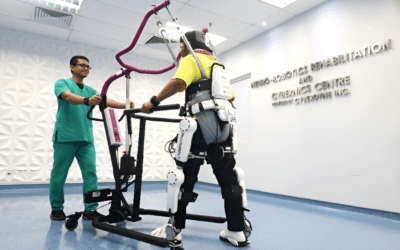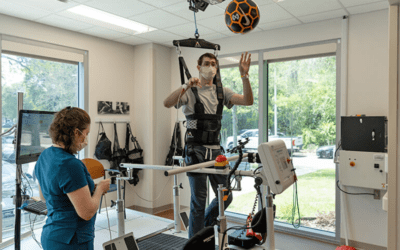What are Dementia and Alzheimer’s disease?
Dementia and Alzheimer’s disease are often used interchangeably, but they’re not the same. Here’s the distinction:
Dementia:
It is a syndrome characterised by a decline in cognitive function, including memory loss, reasoning, language, and problem-solving abilities, to the extent that it interferes with daily life and activities. It’s not a specific disease but a set of symptoms caused by various conditions or diseases affecting the brain. These conditions lead to progressive deterioration in cognitive function and can significantly impair a person’s ability to function independently.
Alzheimer’s disease:
Alzheimer’s disease on the other hand, is the most common cause of dementia, accounting for 60-80% of cases. It’s a progressive neurodegenerative disorder characterised by a gradual decline in cognitive function, particularly memory, thinking skills, and the ability to carry out simple tasks. Alzheimer’s disease involves the accumulation of abnormal protein deposits in the brain, which leads to the death of brain cells and the disruption of neural communication.
So, while Alzheimer’s is a specific disease, dementia is a broader term that encompasses symptoms that can result from various conditions, with Alzheimer’s being one of them. Both are neurological conditions that affect the brain.
Causes of Dementia:

Dementia can be caused by various conditions that damage or impair the functioning of brain cells. Some common causes include:
- Alzheimer’s Disease
- Vascular Dementia
- Lewy Body Dementia (LBD)
- Frontotemporal Dementia (FTD)
- Parkinson’s Disease
- Huntington’s Disease
- Traumatic Brain Injury (TBI)
In some cases, dementia may be reversible if the underlying cause is treated, while in others, it may be progressive and irreversible. Early diagnosis and intervention are crucial for managing symptoms and improving quality of life.
Causes of Alzheimer’s Disease:

The exact cause of Alzheimer’s disease is not fully understood, but it is believed to be caused by a combination of genetic, environmental, and lifestyle factors.
Here are some key factors thought to contribute to the development of Alzheimer’s…
- Genetics:
While most cases of Alzheimer’s disease occur sporadically, a small percentage (less than 5%) are caused by genetic mutations inherited from parents. These mutations are associated with early-onset Alzheimer’s disease, which typically develops before the age of 65.
- Age:
Increasing age is the most significant risk factor for Alzheimer’s disease
- Neuroinflammation:
Chronic inflammation in the brain is believed to play a role in the development and progression of Alzheimer’s disease. Immune cells in the brain, called microglia, may become over-activated and contribute to neurodegeneration.
- Vascular Factors:
Some research suggests that cardiovascular risk factors, such as high blood pressure, high cholesterol, diabetes, and obesity, may increase the risk of developing Alzheimer’s disease. Vascular health is closely linked to brain health, and conditions that impair blood flow to the brain can contribute to cognitive decline.
- Environmental and Lifestyle Factors:
Certain environmental and lifestyle factors may influence the risk of Alzheimer’s disease. These include a sedentary lifestyle, poor diet, smoking, excessive alcohol consumption, and limited cognitive stimulation.
- Head Trauma:
A history of head injuries, particularly traumatic brain injuries (TBIs), may increase the risk of developing Alzheimer’s disease later in life.
Treatment for Dementia and Alzheimer’s disease:

Treatment focuses on managing symptoms, slowing down the progression of the disease, and improving the quality of life for affected individuals. Here are some common approaches to the treatment of dementia and Alzheimer’s disease…
- Medications
- Lifestyle modifications
- Behavioural and Environmental Interventions
- Cognitive Stimulation Programmes and
- Advanced Care Planning
Neurorehabilitation for Dementia and Alzheimer’s:
Neurorehabilitation focuses on maintaining and improving cognitive function, managing symptoms, enhancing quality of life, and promoting independence for individuals affected by these conditions. Neurorehabilitation strategies aim to manage behavioral symptoms and support overall well-being.
Here are some key components of Neurorehabilitation for dementia and Alzheimer’s disease…
Cognitive Rehabilitation:
This involves activities and exercises to improve cognitive functions such as memory, attention, language, and problem-solving skills. Cognitive rehabilitation programmes may include mental exercises, memory aids, and strategies to compensate for cognitive impairments.
Physical Exercise:
Regular physical activity has been shown to have beneficial effects on brain health and cognitive function. Exercise can improve blood flow to the brain, promote the growth of new neurons, and reduce the risk of developing dementia.
Occupational Therapy:
Occupational therapy help individuals with dementia or Alzheimer’s disease maintain their independence in daily activities such as dressing, grooming, meal preparation, and household tasks. They may recommend adaptive strategies, assistive devices, and environmental modifications to support functioning and safety at home.

Speech and Language Therapy:
Speech therapy work with individuals experiencing communication difficulties due to dementia or Alzheimer’s disease. They help improve language skills, comprehension, and speech production through exercises, communication strategies, and alternative communication methods as the condition progresses.
Social and Recreational Activities:
Engaging in social and recreational activities can provide cognitive stimulation, emotional support, and a sense of purpose for individuals with dementia. Neurorehabilitation programmes may offer group activities, arts and crafts, music therapy, and other recreational interventions tailored to the individual’s interests and abilities.
Nutritional Support:
A healthy diet is important for maintaining brain health and overall well-being in individuals with dementia or Alzheimer’s disease. Neurorehabilitation programmes may provide nutritional counseling, meal planning assistance, and support for addressing dietary challenges associated with cognitive decline.
Behavioural Interventions:
Managing behavioural symptoms such as agitation, aggression, wandering, and sleep disturbances is an important aspect of Neurorehabilitation for dementia and Alzheimer’s disease. Strategies may include environmental modifications, behaviour management techniques, and pharmacological interventions as appropriate.
Education and Support for Caregivers:
Neurorehabilitation programmes often involve education and support for caregivers, who play a crucial role in the care of individuals with dementia or Alzheimer’s disease. Caregiver support groups, counselling, respite care services, and training in dementia care techniques can help caregivers manage the challenges associated with caregiving and maintain their well-being.
Overall, Neurorehabilitation for dementia and Alzheimer’s disease is a multidisciplinary approach that addresses the complex needs of individuals affected by these conditions, aiming to optimise function, enhance quality of life, and support both the individual and their caregivers throughout the disease process.
Positive Outlook:
While current treatments for dementia and Alzheimer’s disease focus on managing symptoms and improving quality of life, ongoing research aims to develop more effective treatments, disease-modifying therapies, and ultimately, a cure for these devastating conditions. Early diagnosis, comprehensive care, and support for affected individuals and their families are essential components of dementia care.



